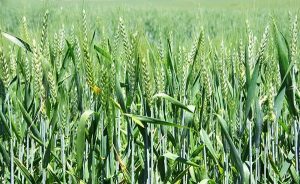
The mobile operator Vodafone Ukraine has signed a memorandum with PrJSC Ukrainian Danube Shipping Company (UDP) on the use of IoT solutions in the field of cross-border river transport.
In particular, the company will introduce online monitoring of the movement of ships, provision of communication facilities on the territory of Ukraine and abroad, as well as tracking the content of cargo.
“We also agreed to use the capabilities of Big Data analytics for the subsequent creation of systems for predicting efficiency and preventing losses. We hope that cooperation with UDP will be successful and become an example of how digital technologies can be used to increase the success of an enterprise,” said deputy Director General of Vodafone Ukraine Andriy Bolshakov during the signing of the document.

Bonds of Metinvest B.V. (Netherlands), the parent company of the Metinvest mining and metals group, due in 2027, is included in in the JPMorgan Corporate Emerging Markets Bond Index (CEMBI) series.
According to the company’s press release issued on Wednesday, the CEMBI indices provide a global benchmark tracking U.S.-dollar-denominated debt issued by emerging market corporations.
At the same time, the eurobond due in 2027 was issued on October 1, 2020 following the successful completion of a liability management exercise to extend the maturity of the group’s outstanding eurobonds. It met the criteria to be included in the CEMBI Broad and CEMBI Broad Diversified high-yield indices after a regular review on October 30, 2020. As a result, Metinvest’s U.S.-dollar-denominated eurobonds are all included in these two indices for the high-yield segment.
In addition, the eurobond due in 2029, which was issued on 17 October 2019, has effectively replaced the eurobond due in 2023 in the CEMBI and CEMBI Diversified high-yield indices after the size of the latter decreased to below $500 million.

The State Property Fund of Ukraine (SPF) on November 4, 2020 announced the holding of auctions for the privatization of Dovzhok (Khmelnytsky region), Zaliztsi (Ternopil region) and Martynivka (Vinnytsia region) distilleries of the state-owned enterprise Ukrspyrt.
According to the SPF’s press service, the online auction for the privatization of Zaliztsi distillery will take place on December 2, Dovzhok distillery on December 3, and Martynivka distillery on December 4.
“The privatization of these assets is taking place within the framework of demonopolization of the alcohol industry and in order to create a market for alcohol on a competitive basis. Investing in alcohol assets through privatization is an opportunity for their future owners to obtain a license for the right to produce alcohol, which will become a significant competitive advantage for them in the market,” the fund said.

As of November 2, Ukrainian agricultural producers sowed the main winter crops on an area of 7.5 million hectares (91% of the forecast of 8.2 million hectares), 371,000 hectares were sown in a week.
According to a report on the website of the Ministry of Economic Development, Trade and Agriculture on Tuesday, the following crops were sown: wheat – 5.65 million hectares (92% of the forecast), barley – 867,000 hectares (92%), rye – 118,800 hectares (89%), rapeseed – 862,600 hectares (85%).
According to the State Statistics Service, the sown area of winter crops for the harvest in 2020 amounted to 8.9 million hectares, which is 0.2% more than the area for the harvest in 2019.
Winter wheat was sown on 6.4 million hectares (0.6% less than in 2019), winter barley – 1 million hectares (+ 3.9%), rye – 135,000 hectares (+ 16.7%) and rapeseed – 1.3 million hectares (+ 0.3%).

The Antimonopoly Committee of Ukraine (AMCU) has made a decision on the case of violation of competition law by the pharmaceutical group Novo Nordisk, fining it and its distributors UAH 188 million, according to the AMCU website.
“Thanks to the introduced mechanism for providing after-sales discounts, distributors of the Novo Nordisk group companies received additional income significantly higher than 10%, as provided by the legislation of Ukraine, and in some cases – up to 80%. The chain of opaque pricing led to an unjustified overstatement of the selling prices for Novo Nordisk medicines and provided distributors with competitive advantages, without which other participants in the sales of Novo Nordisk medicines could not compete with them,” the message says.
It is clarified that it is about setting prices for medicines intended for the treatment of diabetes mellitus, problems with growth retardation and for the treatment of hemophilia by Novo Nordisk A/S (Denmark), Novo Nordisk Health Care AG (Switzerland) and a number of pharmaceutical distributors and pharmacies: Medpharkom LLC, Medpharkom-Center PrJSC, BaDM LLC, BaDM-B LLC, Pharmacy 3I LLC, Ganza PrJSC, Pharmadis LLC and Medpharm LLC.
AMCU fined Novo Nordisk A/S UAH 134 million, Novo Nordisk Health Care AG UAH 1.7 million, PrJSC Medpharkom-Center UAH 28.7 million, BaDM Group UAH 16.7 million, LLC Pharmacy 3I LLC UAH 680,000, PrJSC Ganza UAH 340,000, LLC Medpharm UAH 5.5 million.
Production at Medpharkom LLC and Pharmadis LLC was discontinued due to the liquidation of the companies.

Sales of new passenger cars in October of this year decreased by 8.2% compared to the same month of 2019, to 8,340 cars, which is 602 cars (or 7.8%) more than in September of this year, AUTO-Consulting said on Monday.
In October, Renault returned to be a leader, managing to increase sales by 39% compared with September 2020, to 1,413 cars, while Toyota, which finished second, reduced sales by almost 3%, to 1,343 cars. The third position was taken by Kia with an increase in sales compared with September 2020 by 76.3%, to 825 cars.
AUTO-Consulting said that in October of this year, the fourth place was taken by Skoda (compared to the sixth in September), with a 43% increase in sales, and Volkswagen remained in the top five best sellers, but the sales of this brand decreased by 26%.
“An important event in October was Peugeot’s breakthrough to seventh place (from 16th in September 2020) with a 114% increase in sales, to 335 cars. Peugeot has already finished in the top 10 several times throughout the year, and it looks like the current success will become systemic,” AUTO-Consulting said.
At the same time, according to analysts’ estimates, it was indicative in October that key premium brands – Audi, BMW, Mercedes-Benz, Lexus – remained without significant sales growth and finished with a decline in sales.
Taking into account October sales, the car market in January-October decreased by 3.3% compared to the same period in 2019.